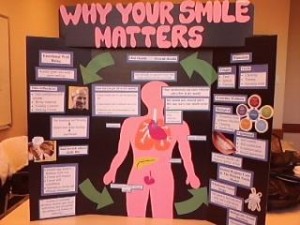Currently the British Columbia’s Medical Service Plan (MSP) does not cover for dental care. With the only minor exception for emergency dental care provided at hospitals and residents 19 years old or younger who are a part of a low to moderate income family. (1) Thus, my group ( consist of Arielle,Nancy and I ) want to advocate and work towards including oral assessments with in the MSP. The oral assessment would include intra/extra oral exam, dental exam, and periodontal exam. We believe as health care professionals, it is important to view health in a holistic sense. People go to their doctors to get their yearly blood work done to prevent diseases, maintain health, and ensure the health of the individual. because they want to know that everything is healthy. Likewise, an oral assessment is a baseline indicator to whether the mouth is healthy or unhealthy. We also believe that by inputting oral assessment as apart of the MSP, the population will gain an insight on the notion of prevention and maintenance of the oral health. Moreover, Integrating oral health into the MSP, coincides with the Ottawa Charter of reorienting health services so that different health care professions work together to satisfy the need of a person as a whole. (2)
As apart of our cause advocacy project, we plan to act on this by means of A) Writing a letter to Michael De Jong B) Starting a facebook page to gain support from fellow hygienists.
In doing so, we hope that once this is in place there will be a decrease in oral health disparity present in BC and also promote the notion of maintenance of oral health as apart of overall health.
Please see the link below for the Facebook page we created
https://www.facebook.com/groups/324277417620415/
Our letter to Michael De Jong is found below.
DHYG410_Cause_Advocacy_Nancy_Anna_Arielle
Reference
- British Columbia Ministry of Health. Medical and health care benefits [Internet]. [cited 2012 March 28]. Available from: http://www.health.gov.bc.ca/msp/infoben/benefits.html
- World Health Organization. Ottawa Charter for Health Promotion. First International Conference on Health Promotion; November 21, 1986. Ottawa: WHO; 1986. p.1-4.


